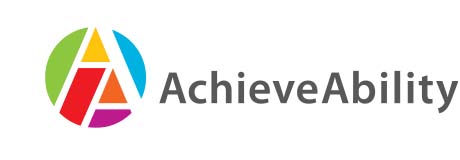Answer to Parliamentary questions
The Department for Work and Pensions has provided the following answer to your written parliamentary question (16122):
1) Question:
To ask the Secretary of State for Work and Pensions, how many apprentices who have dyslexia have received support from the Access to Work fund in each of the last five years. (16122)
Tabled on: 13 November 2015
Answer:
Justin Tomlinson:
The Government does not collate data on the number of apprentices with dyslexia who have received support from Access for Work.
However, the overall number of people with dyslexia who are helped by Access to Work has been steadily increasing. In 2014/15, 4,560 people who reported dyslexia as their primary condition were supported by the scheme.
The answer was submitted on 23 Nov 2015 at 12:02.
The Department for Business, Innovation and Skills has provided the following answer to your written parliamentary question (16126)
2) Question:
To ask the Secretary of State for Business, Innovation and Skills, (a) how many and (b) what proportion of the total number of Employment Support Fund claimants were claimants with dyslexia in each of the last five years. (16126)
Tabled on: 13 November 2015
Answer:
Joseph Johnson:
Employment Support Funds are maintained and dispensed by University Student Unions. They are typically used to provide support for the cost of attending an interview for a job or further study. Government is not responsible for this funding and we therefore do not hold the data requested.
The answer was submitted on 20 Nov 2015 at 11:04.
The Department for Business, Innovation and Skills has provided the following answer to your written parliamentary question (16131):
3) Question:
To ask the Secretary of State for Business, Innovation and Skills, what assessment he has made of the potential effect of changes to disabled students’ allowances on students with dyslexia. (16131)
Tabled on: 13 November 2015
Answer:
Joseph Johnson:
The Government has undertaken an Equality Analysis of the proposed changes to DSAs. The Equality Analysis will be published alongside the Government response to the consultation.
The answer was submitted on 20 Nov 2015 at 11:05.
4) Question:
To ask the Secretary of State for Business, Innovation and Skills, what steps he is taking to ensure that higher education institutions make appropriate provision for disabled students who do not have complex needs. (16134)
Tabled on: 13 November 2015
This question was grouped with the following question(s) for answer:
1. To ask the Secretary of State for Business, Innovation and Skills, what steps he is taking to improve the provision of education for and support offered to dyslexic students in higher education outwith the provision of disabled students’ allowances. (16127)
Tabled on: 13 November 2015
2. To ask the Secretary of State for Business, Innovation and Skills, what steps he is taking to promote joint work between special needs assessors and disability advisers within universities on ensuring that appropriate support is given and provision made for disabled students and for students with dyslexia. (16133)
Tabled on: 13 November 2015
Answer:
Joseph Johnson:
Higher education institutions are responsible for meeting their legal obligations under the Equality Act 2010, including for students with dyslexia.
The Department for Business, Innovation and Skills has provided the following answer to your written parliamentary question (16126):
5) Question:
To ask the Secretary of State for Business, Innovation and Skills, what evaluation he has conducted on the extent to which universities cater to the needs of disabled students. (19504)
Tabled on: 10 December 2015
This question was grouped with the following question(s) for answer:
1. To ask the Secretary of State for Business, Innovation and Skills, what information his Department holds on satisfaction levels of (a) non-disabled and (b) disabled students of their experience in higher education. (19503)
Tabled on: 10 December 2015
Answer:
Joseph Johnson:
The National Student Survey (NSS) annually gathers students’ opinions on the quality of their course. The Higher Education Funding Council for England (HEFCE) published a separate report in 2014 which provides analysis on the differences between NSS results for different student characteristics over the period 2005-2013.
6) Question:
To ask the Secretary of State for Business, Innovation and Skills, what steps his Department is taking to ensure that the Independent Adjudicator can monitor the implementation by higher education institutions of provision for disabled students who do not have complex needs. (19505)
Tabled on: 10 December 2015
Answer:
Joseph Johnson:
Higher education institutions have a legal duty under the Equality Act 2010 to provide reasonable adjustments for disabled students and to monitor their compliance with their Equality Act duties. The Equality Act 2010 (Specific Duties) Regulations 2011 require institutions to publish information as to their compliance with the general public sector equality duty.
Students who are dissatisfied with the provision of support, and raise their concerns through their institution’s formal complaints procedures, can then also take their case to the Office of the Independent Adjudicator. This is a free service for the student.
7) Question:
To ask the Secretary of State for Business, Innovation and Skills, what estimate he has made of the number of dyslexic students who will receive disabled students’ allowances in each of the next five years. (16128)
Tabled on: 13 November 2015
This question was grouped with the following question(s) for answer:
1. To ask the Secretary of State for Business, Innovation and Skills, (a) how many and (b) what proportion of recipients of disabled students’ allowances had dyslexia in each of the last five years. (16130)
Tabled on: 13 November 2015
Answer:
Joseph Johnson:
The Student Loans Company (SLC) administers student support for each of the UK Government Administrations. The number and proportion of new applicants deemed by SLC to be eligible for Disabled Students’ Allowances (DSA) is set out in the attached table.
